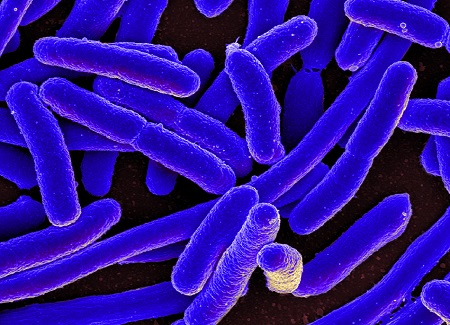(CNN)Think
twice before licking that spoon as you prepare cake batter or cookie
dough for holiday treats. Salmonella from raw eggs is no longer the only
concern in baking.
A study
published this week in the New England Journal of Medicine details an
outbreak of E. coli in 2016 linked to flour and found that the problem
may be more common than previously thought."Our data show that although it is a low-moisture food, raw flour can be a vehicle for foodborne pathogens," the study said.
Other
foods are more commonly associated with E. coli outbreaks, including
undercooked or uncooked meat, produce such as lettuce, and unpasteurized
milk and cider.
Symptoms
of E. coli can begin one to 10 days after exposure to the bacteria.
They can include stomach cramps, diarrhea, vomiting and fever, according to the US Centers for Disease Control and Prevention. Most people get better in five to seven days.However,
some develop a severe complication called hemolytic uremic syndrome, in
which the kidneys stop working. This can be life-threatening, and
patients who recover may experience permanent kidney damage.
The new study detailed an outbreak that caused 63 cases of illness across 24 states. Seventeen people were hospitalized.
The
CDC and the US Food and Drug Administration identified the outbreak and
began an investigation in June 2016. General Mills flour was first
identified as the potential cause, and the company announced a nationwide recall of three of its brands: Gold Medal, Gold Medal Wondra and Signature Kitchens.
In
July 2016, after tests confirmed that the flour was to blame, the
recall was expanded to include flour produced between November 14, 2015,
and February 10, 2016. In addition, at least five other companies that
used recalled flour in their products announced recalls, including Betty
Crocker cake mix, Marie Cullender's biscuit mix and Krusteaz pancake
mix.
"Linking this outbreak to
flour was challenging. Consumption of raw or under cooked flour is not
included on most routine state and national food borne disease
questionnaires, so epidemiologists were not initially able to assess
whether case patients had consumed raw flour," the report says, adding
that many of the ill patients also reported consuming chocolate chips,
which were ruled out as the cause. It was later determined that those
patients were baking with flour and chocolate chips.
The authors warned that the outbreak was
worsened by human behavior: "The consumption of raw or under cooked
homemade dough or batter, which has long been discouraged because of the
known risk of salmonellae from consuming raw eggs, as well as
allowing children to play with raw dough in restaurants and using flour
to make play-dough for children at home."Unfortunately, the advice here is to wash that spoon and bowl without giving in to the temptation to take a taste.




No comments:
Post a Comment